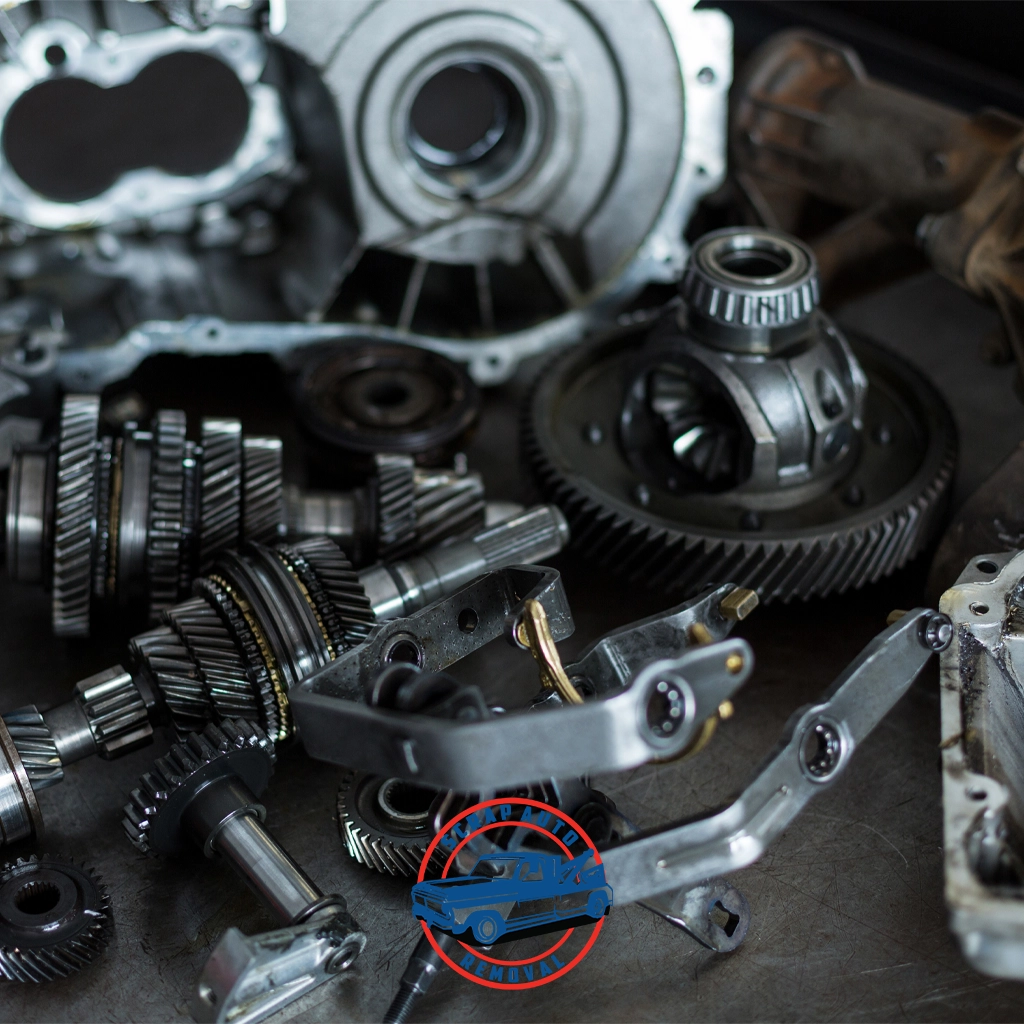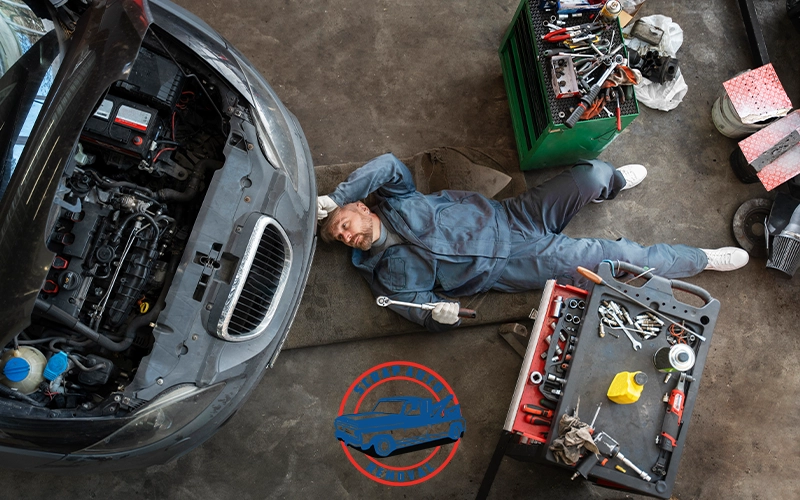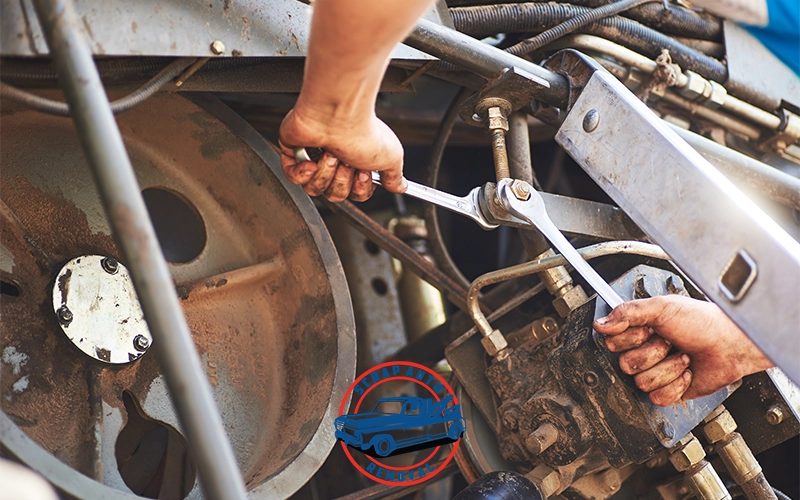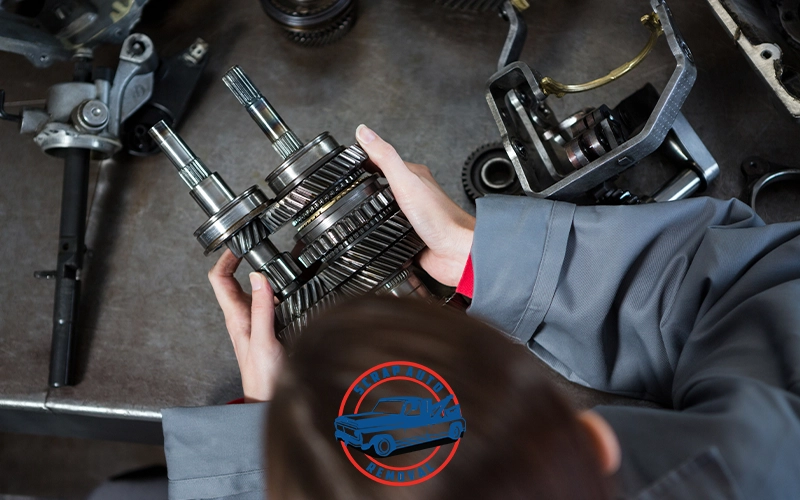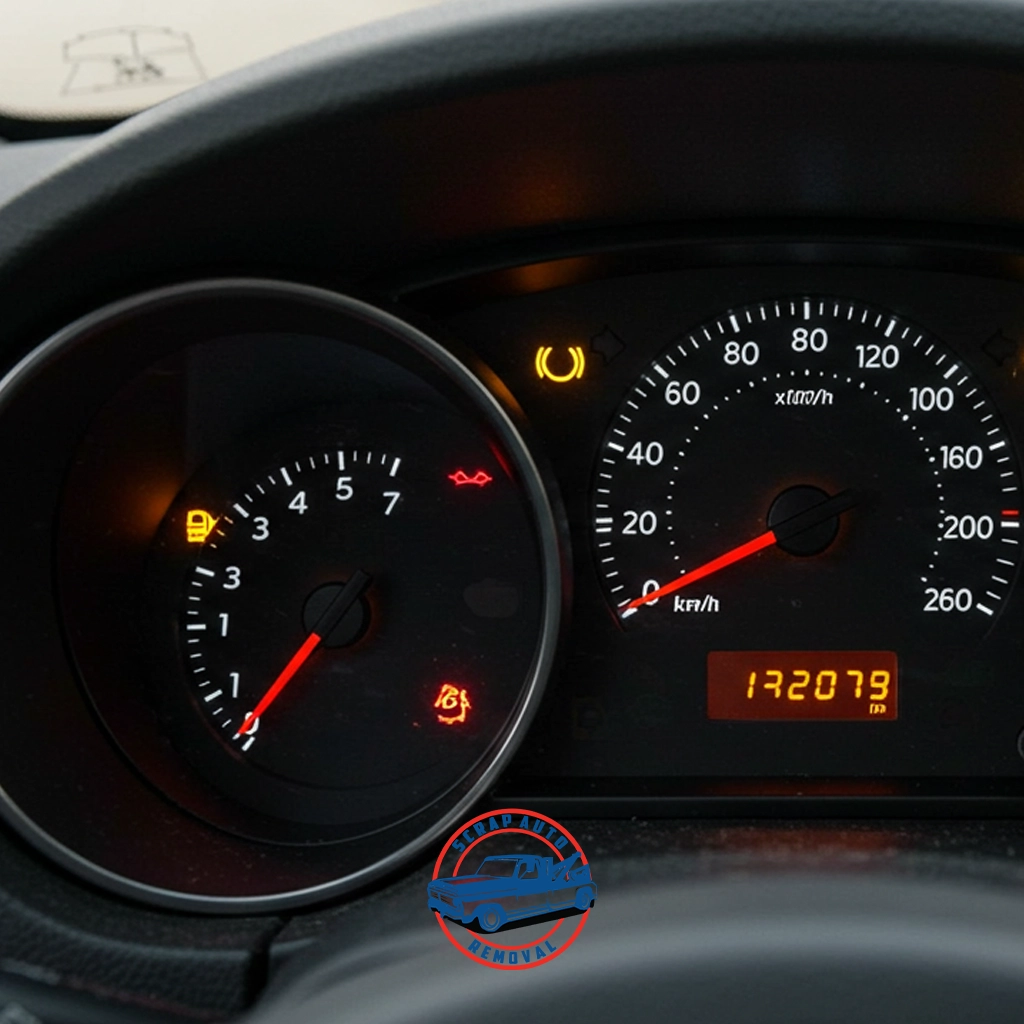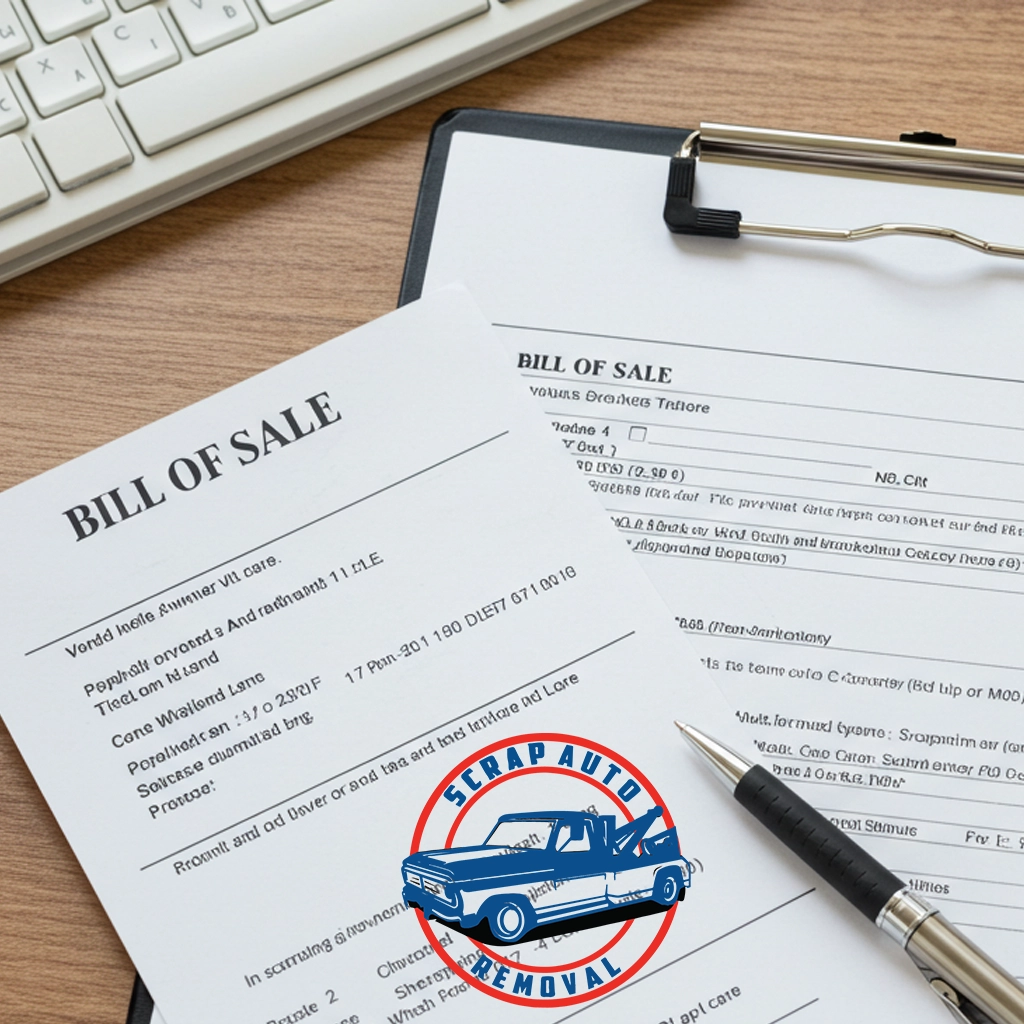Uh-oh. Is your car making weird noises when it shifts gears, slipping, or maybe just refusing to move altogether? If you’re facing transmission trouble, the thought of selling a car with a bad transmission can feel like hitting a major roadblock. It’s a significant mechanical issue, and it’s completely normal to feel a bit discouraged, wondering if anyone will even consider buying it.
Think of it this way: a car with transmission problems isn’t necessarily a total write-off. While it’s a serious flaw, there are specific buyers out there who are prepared to take on such a challenge. Successfully selling a car with a bad transmission requires a clear understanding of its condition, honesty, and a strategic approach to finding the right market.
So, let’s help you understand your options and get the best possible outcome for your struggling vehicle with this Calgary Scrap Auto Removal blog .
Understanding the “Bad” Transmission: What’s Going On?
Before you even think about listing your car, it’s really helpful to understand the nature of the transmission issue. “Bad transmission” can mean a few different things, from minor fixes to a complete overhaul.
Minor Issues: Sometimes, a transmission problem might be relatively minor, such as a faulty sensor, low transmission fluid, or a clogged filter. These can cause symptoms like hard shifting or delayed engagement but are often inexpensive to fix.
Moderate Problems: This could involve worn-out solenoids, a slipping clutch (in manual transmissions), or issues with the valve body. These repairs are more significant but still might be worth it depending on the car’s value.
Major Failure: This is when the transmission is completely shot – internal damage, no gears engaging, loud grinding noises, or total failure to move. This almost always requires a full replacement or a major rebuild, which can be very expensive.
If you haven’t already, getting a diagnostic from a trusted mechanic can give you a clearer picture of the problem and an estimate of the repair cost. This information is gold when you’re talking to potential buyers.
To Fix or Not to Fix? The Million-Dollar Question
This is the central dilemma when you’re considering selling a car with a bad transmission. The answer depends heavily on the car’s overall value versus the cost of repair.
When it Might Be Worth Fixing:
- High-Value Vehicle: If your car is a relatively new model, a luxury vehicle, or a highly sought-after classic, the cost of a transmission repair or replacement might be a smaller percentage of its overall value. In these cases, investing in the fix could significantly increase your selling price and attract a wider range of buyers who want a fully functional car.
- Low Repair Cost, High Impact: If the diagnostic reveals a relatively inexpensive fix (like a sensor replacement or fluid flush) that dramatically improves the car’s drivability, it’s often worth doing. You’ll likely recoup the cost in a higher, faster sale.
- Your Goal is Maximum Return: If getting the absolute highest price is your priority and you have the funds and time for repairs, a fixed transmission will achieve that.
When Selling As-Is is Smarter:
- High Repair Cost, Low Car Value: This is the most common scenario. If the repair cost (which can easily be $3,000 to $7,000+ for a replacement or rebuild) significantly exceeds or is close to the car’s market value without the transmission issue, then repairing it almost certainly won’t be financially sensible. You’ll likely lose money on the repair.
- Other Significant Issues: If the car has a bad transmission and other major problems (e.g., severe rust, engine issues, extensive body damage), pouring money into the transmission becomes even less appealing.
- You Prioritize Convenience and Speed: Selling as-is is almost always faster and involves less hassle than arranging and paying for a major repair.
- Targeting Specific Buyers: As we’ll discuss, certain buyers specifically look for cars with known mechanical issues at a discount.
For most average sedans, SUVs, or trucks that are more than 5-7 years old with a major transmission failure, selling as-is is typically the more pragmatic and financially sound decision.
Legal and Ethical Disclosure: Honesty is Your Strongest Asset
This cannot be emphasized enough: when selling a car with a bad transmission in Alberta, complete honesty and transparency are not just ethical, they’re legally required. Attempting to hide or downplay such a significant mechanical defect can lead to serious legal repercussions, including lawsuits, fraud charges, and substantial financial penalties.
Provide All Documentation: Building Credibility
Providing documentation is a powerful way to build credibility and trust. If you’ve taken the car to a mechanic for a diagnostic, make sure to share those reports with potential buyers. These professional assessments offer an objective view of the problem. Additionally, gather any records of past transmission services, fluid changes, or related repairs.
Even if these didn’t prevent the current issue, they demonstrate a history of maintenance and care. Having these documents readily available shows that you are a responsible owner and are being thorough in disclosing the vehicle’s history, which can significantly put a buyer at ease even when facing a major defect.
Answer Questions Honestly: Fostering Trust and Avoiding Pitfalls
Expect potential buyers to have many in-depth questions about the transmission’s history, when the problem first started, and the specific symptoms it exhibits. Answering these questions honestly and without hesitation is crucial. Do not attempt to invent answers, minimize the severity of the problem, or deflect inquiries.
Buyers of vehicles with known major issues are often quite knowledgeable and will quickly spot inconsistencies. Your candidness about the transmission’s behavior and the timeline of its issues will go a long way in building trust. Remember, attempting to conceal or misrepresent known defects can lead to serious legal repercussions down the line, including claims of misrepresentation or fraud.
“As-Is” Clause: Reinforcing Buyer Awareness
While it’s a common practice in private vehicle sales to include an “as-is” clause on the Bill of Sale, it’s vital to understand its limitations, especially in the case of a broken transmission. An “as-is” clause typically means the buyer accepts the vehicle in its current condition with all faults, and the seller provides no warranty. However, this clause does not protect you from liability for failing to disclose known defects.
You cannot use “as-is” to hide a transmission problem you were aware of. What it does do is reinforce that the buyer is fully aware they are purchasing a vehicle with existing issues and that they are responsible for any future repairs. It serves as a clear acknowledgment that the transaction is for a vehicle with disclosed problems, further solidifying the transparency of the sale.
Finding the Right Buyer: Who Wants a Leaky Gearbox?
The buyer pool for a car with a bad transmission is certainly narrower, but it’s not empty. You’ll primarily be targeting specific types of buyers:
- Mechanics or Automotive Enthusiasts: These individuals often have the skills, tools, and access to parts at wholesale prices to perform the transmission repair themselves. They are looking for a significant discount on the purchase price to compensate for their labor and parts cost. This is often your best bet for a private sale.
- “Fixer-Upper” or Project Car Seekers: Some buyers are specifically looking for a cheap vehicle they can gradually restore or use as a parts donor for another project. They might be less concerned about immediate drivability.
- Used Car Dealerships (Wholesale/Auction Bound): Some smaller, independent used car lots might be interested, but they will offer you a very low price. They’ll factor in the full cost of repair plus their profit margin, or they’ll send it straight to an auction.
- Salvage Yards / Auto Recyclers: If the transmission problem is severe, and the car has other issues (high mileage, rust, other mechanical failures), then a salvage yard is a highly practical option. They value the car for its scrap metal and any other usable components (engine, body panels, interior).
- Scrap Auto Removal Services: This is often the most convenient and straightforward route for cars with severe transmission problems, especially if they are no longer roadworthy or the repair costs far exceed their value. For those in Calgary looking to quickly offload a car with a bad transmission and minimal fuss, Scrap Car Removal offers a straightforward solution. We buy vehicles in any condition, handle the pickup, and simplify the process of getting it off your hands and getting you some cash.
Pricing It Right: Reflecting the Reality
When selling a car with a bad transmission, your asking price absolutely must reflect the severity of the issue and the substantial financial burden a buyer will face for repairs. Start by researching the “good” value first, identifying the market price for your exact make, model, year, and mileage as if it had a perfectly functional transmission. From that figure, deduct the estimated cost of a professional transmission replacement or rebuild, and then subtract an additional amount to compensate the buyer for their hassle, inherent risk, and any potential unforeseen complications during the repair process, as buyers typically expect a discount exceeding the repair cost itself.
Finally, be openly prepared for significant negotiation, as buyers of vehicles with major mechanical flaws inherently anticipate considerable room for price adjustment; therefore, set your initial price strategically, slightly above your absolute minimum, but be ready to concede to a lower, mutually agreeable figure.
Final Steps: The Handover
Once you’ve found a buyer and agreed on a price:
- Bill of Sale: Use a comprehensive Bill of Sale. Clearly state the vehicle’s condition, including the known transmission issues, VIN, sale price, and date. Both buyer and seller should sign, and you must keep a copy.
- Transfer of Ownership: Sign over the vehicle portion of your Alberta Registration Certificate to the buyer. This legally transfers ownership.
- Remove Licence Plates: In Alberta, plates belong to you. Remove them before the vehicle leaves your property. You can transfer them to another vehicle or return them to an Alberta registry agent for cancellation.
- Cancel Registration: As soon as the car is sold and picked up, officially cancel its registration with an Alberta registry agent. This ensures you are no longer legally associated with the vehicle.
- Receipt/Proof of Sale: Get a receipt or, from a salvage yard, a Certificate of Destruction. This provides official proof you legally disposed of the vehicle.
Conclusion
Selling a car with bad transmission can seem like a major headache, but by being transparent, understanding your options, and targeting the right kind of buyer, you can successfully navigate the process. While you won’t get top dollar, you can still responsibly offload your vehicle and free yourself from a costly repair. Whether you choose to sell it to a mechanic-minded individual or opt for the convenience of a scrap auto removal service, a pragmatic approach will lead you to a positive outcome.


